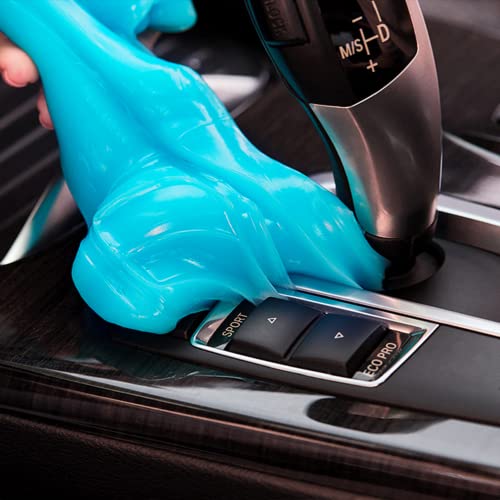Miles Per Gallon Calculator: Calculate Your Vehicle's Fuel Efficiency
Determine your vehicle's MPG (Miles Per Gallon) by entering your trip distance and fuel consumption details.
List of the Top 10 Best Essentials for Your Car:
Understanding Fuel Efficiency
Calculating your vehicle's Miles Per Gallon (MPG) helps you understand fuel efficiency, estimate trip costs, and identify potential vehicle maintenance issues.
How Does the MPG Calculator Work?
The calculator uses a simple formula to determine your fuel efficiency:
- MPG Calculation: Distance traveled divided by fuel used
- Metric Conversion: Converts kilometers to miles and liters to gallons when needed
- Cost Calculation: Estimates trip cost when fuel price is provided
Average MPG by Vehicle Type
| Vehicle Type | City MPG | Highway MPG | Combined MPG |
|---|---|---|---|
| Compact Car | 28-32 | 36-42 | 32-36 |
| Midsize Sedan | 24-28 | 32-38 | 28-32 |
| SUV | 20-24 | 26-30 | 22-26 |
| Truck | 16-20 | 20-24 | 18-21 |
| Hybrid Vehicle | 40-50 | 45-55 | 42-52 |
Factors Affecting Fuel Efficiency
Driving Habits
- Aggressive acceleration
- High-speed driving
- Excessive idling
- Frequent braking
Vehicle Maintenance
- Tire pressure
- Engine tune-up status
- Air filter condition
- Oil quality
Environmental Factors
- Temperature extremes
- Wind conditions
- Road grade
- Traffic congestion
Vehicle Load
- Cargo weight
- Passenger count
- Roof racks/carriers
- Towing trailers
Tips to Improve Your MPG
1. Driving Techniques
- Maintain steady speeds
- Use cruise control on highways
- Anticipate traffic flow
- Avoid rapid acceleration
2. Vehicle Care
- Keep tires properly inflated
- Follow maintenance schedule
- Use recommended motor oil
- Remove unnecessary weight
3. Trip Planning
- Combine short trips
- Avoid rush hour when possible
- Use most efficient routes
- Limit air conditioning use
Frequently Asked Questions
How accurate is the MPG calculator?
For best results:
- Fill your tank completely before and after your trip
- Record exact odometer readings
- Calculate over several tanks for better averages
- Note driving conditions for each calculation
What's the difference between city and highway MPG?
City driving typically gets lower MPG due to:
- Frequent stops and starts
- Idling at traffic lights
- Lower average speeds
- More acceleration events
How can I improve my vehicle's MPG?
Consider these improvements:
- Regular engine maintenance
- Properly inflated tires
- Reduced vehicle weight
- Smoother driving habits
- Using recommended fuel grade
Why is my actual MPG different from the EPA estimate?
Differences can occur because:
- EPA tests use controlled conditions
- Your driving style may differ
- Local terrain affects efficiency
- Vehicle age and maintenance status
- Climate and weather conditions
How does speed affect MPG?
Fuel efficiency typically:
- Peaks between 45-60 mph for most vehicles
- Decreases rapidly above 60 mph
- Is affected by wind resistance (increases with speed squared)
- Varies by vehicle aerodynamics
What's considered good MPG?
Good MPG depends on vehicle type:
- Compact cars: 30+ MPG
- Midsize cars: 25+ MPG
- SUVs: 20+ MPG
- Trucks: 18+ MPG
- Hybrids: 40+ MPG
How do I calculate MPG over multiple fill-ups?
For accurate long-term MPG:
- Record odometer at each fill-up
- Note gallons added each time
- Calculate MPG between fill-ups
- Average several readings
- Track different driving conditions separately
Does AC use affect MPG?
Air conditioning can:
- Reduce MPG by 1-4 in city driving
- Have less impact at highway speeds
- Be more efficient than open windows at high speeds
- Vary by vehicle age and system efficiency
How does tire pressure affect MPG?
Proper inflation is crucial because:
- Underinflated tires increase rolling resistance
- Each 1 PSI drop can reduce MPG by 0.2%
- Optimal pressure is in door jamb sticker
- Check pressure when tires are cold
What's the difference between MPG and L/100km?
These are different measurement systems:
- MPG = miles per gallon (higher is better)
- L/100km = liters per 100 km (lower is better)
- Common in Europe and Canada
- Our calculator can handle both systems
How does fuel type affect MPG?
Fuel considerations include:
- Premium vs. regular typically has minimal MPG difference
- Ethanol blends may reduce MPG (E10, E15, E85)
- Diesel engines generally get better MPG
- Always use manufacturer-recommended fuel
How often should I check my MPG?
Recommended monitoring:
- Check every fill-up for significant changes
- Track seasonal variations
- Monitor after maintenance
- Compare city vs. highway driving
- Watch for sudden drops that may indicate problems
What causes sudden MPG drops?
Potential causes include:
- Maintenance issues (spark plugs, filters)
- Tire pressure problems
- Brake drag
- Fuel system issues
- Changed driving conditions
How does towing affect MPG?
Towing impacts fuel efficiency by:
- Reducing MPG by 30-50% when towing
- Increasing with trailer weight and size
- Being worse at higher speeds
- Varying by vehicle towing capacity
Is winter MPG worse than summer?
Winter typically reduces MPG because:
- Cold engines are less efficient
- Winter fuel blends have less energy
- Tire pressure drops in cold weather
- Accessory use increases (defrosters, heaters)
Additional Resources
- Fuel Efficiency Tracking Apps
- EPA Fuel Economy Guides
- Vehicle Maintenance Schedules
- Fuel Price Comparison Tools
- Eco-Driving Techniques
![LISEN Retractable Car Charger 4 in 1 [69W USB C Car ChargerAdapter] for iPhone 16 Car Charger Fast Charging, Gifts for Women Men, Car Accessories USBC Car Charger for iPhone 16 15 14 13 12, Gray](https://m.media-amazon.com/images/I/41l3VqtfD-L._SL500_.jpg)

![200W Car Power Inverter, PiSFAU DC 12V to 110V AC Car Plug Adapter Outlet with [20W USB-C] /USB-Fast Charger(18W) / 4.8A Dual USB/car Charger for Laptop](https://m.media-amazon.com/images/I/41TnIJVNvzL._SL500_.jpg)






